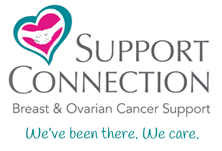When I was a kid, I loved playing the board game Life. It made the big, unexplored world seem so exciting and appealing. You even collected money when you added children to your family!
The process of adding those children was relatively simple, as I recall. It involved receiving tiny pegs in pink or baby blue that you’d place in the backseat of your miniature plastic car as you slowly drove the windy path of the board. While playing, I’d wonder to myself what it would be like to have actual kids of my own one day. I assumed I’d have a collection of boys because, well, I grew up in a house of five boys. Any deviation from that plan was difficult to imagine.
That was pretty much my first vision of fatherhood: Driving through the game of Life in a red (my favorite color) convertible car, collecting sons in the backseat while other players ponied up with cash.
When my first real child was born, who turned out to be a boy, my head filled with images of the little guy hoisted up on my shoulders. I also envisioned blissful moments involving baseball games, sand castles and angelic smiles and coos morning, noon and night. Of course, unlike the board game, real life has a way of throwing a cold glass of water in your face.
I was zooming through life juggling the typical plates that most 40-something-year-old dads seem to tackle, such as a demanding job, lots of travel, volunteer projects and a backseat of a car that suddenly included two sons…and a daughter. Then somewhere out of left field, I was diagnosed with cancer. My world came to a screeching halt as I worked through several health issues, including surgery, recovery and follow-up treatments, that have pretty much become the norm in my life.
Funny thing is, I’m as happy, peaceful and content today— five years post diagnosis— as I ever have been in my life. I also think I’m finally the dad I was meant to be.
I am a single dad raising my two sons and daughter alone. Alone as in serving as the sole parent 24/7. That’s another twist in the unexpected string of events called real life.
In Home Game (W. W. Norton & Company), a wonderful story about fatherhood, bestselling author Michael Lewis hits the nail on the head for me when he discovers that “It’s only in caring for a thing that you become attached to it.” Like Lewis, my journey to dad-dom involved the realization that being a father was defined by my attachment to another human being.
One of the first truths I learned post cancer while doing this parenting gig alone was that you need to throw away the stereotypes. I was trying to play the dual roles of mom and dad. I realized this was impossible. What I also learned was that it’s far more important to focus on being a parent than fulling the role of a mom or a dad. This liberated me to a new way of thinking about who I was. It helped me find the path to being the parent my kids need me to be. I also shed any preconceived ideas of what I thought I should be. I now follow my children’s lead, and I have learned that they’re pretty good at giving me clues as to what they need from me as a parent. The real challenge is accommodating the signals they are sending.
I also learned to give up any notion of being the superman in the house who could fix everything, including disappointment, hurt feelings, lost friends, teenage quarrels and the host of other ups and downs that come with raising children. Along the way, I’ve discovered that my kids don’t expect me to fix everything. Actually, I’ve learned that it kind of bugs them when I pretend I can fix everything. Kids are content to know their parents listen. When they hurt, kids are content to know their parents are sad or disappointed with them. And they do survive.
But, hands down the most important thing I’ve learned is how critical it is to always be available to your children. On all levels. Every minute of the day. This means being available physically as well as emotionally. If you’re into it, spiritually too. When you’re children know you are there for them no matter what, it opens a spectacular world of parent-child relationships that are invaluable.
Will all this make you the greatest parent in the universe? Hardly. But it might make you the greatest to the people who matter the most: your kids. At the end of the day, that’s great enough for me.



